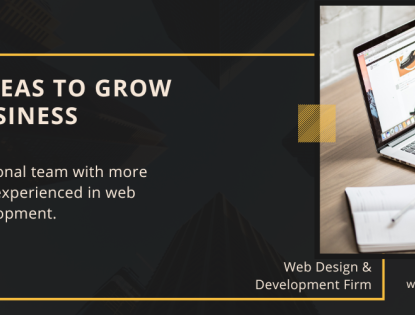Have you ever thought about how your website is managed behind the scenes? If not, you’re not alone! Most business owners just want their website to work—they’re not thinking about the software powering it. That’s where something called a Content Management System (CMS) comes into play.
Your website isn’t just "nice to have"—it’s a vital tool that helps customers discover your business, learn about what you offer, and (ideally) take action, like booking an appointment, making a purchase, or reaching out for more information.
But have you ever thought about how your website is managed behind the scenes? If not, you’re not alone! Most business owners just want their website to work—they’re not thinking about the software powering it. That’s where something called a Content Management System (CMS) comes into play.
In this post, we’ll break down:
- What a CMS is (in simple terms).
- Why choosing the right CMS matters for your business.
- A comparison of some of the most popular CMS platforms for small and medium businesses—including their pros and cons—so you can make an informed choice that fits your goals.
What Is a CMS (and Why Should You Care)?
A Content Management System (CMS) is a tool that allows you to create, edit, and manage your website content (like text, images, and blog posts) without needing to know how to code. Instead of calling a web developer every time you need to make a change, you can log into the CMS, make updates yourself, and publish changes in real time.
Think of it like a website "control center" that simplifies things for you.
Here’s why a CMS matters:
- Easier Updates: You can quickly make changes to your website—like updating your business hours or adding a new service—without a technical background.
- Save Time and Money: Instead of paying a developer for minor changes, you can handle them yourself.
- Keep Your Site Fresh: A CMS makes it easy to keep your website content current, which helps you engage customers and build trust.
In short, the right CMS gives you control over your website, so you can focus on running your business instead of navigating tech headaches.
Why Choosing the Right CMS Is Important
If your CMS is clunky, outdated, or difficult to use, it can make website management feel like pulling teeth—and that can lead to a website that’s neglected and outdated. Worse, some CMS platforms aren’t built to handle things like increased traffic, added features (like e-commerce), or security needs.
Choosing the right CMS can make all the difference. The right one will:
- Grow with your business: A good CMS supports future needs, like adding new pages, launching new features, or handling more visitors.
- Enhance security: If your CMS isn’t secure, your site could be vulnerable to cyberattacks, which can damage your business’s reputation.
- Make life easier: A user-friendly CMS lets you or your team make updates quickly without a lot of training.
With so many options out there, let’s walk through some of the most popular CMS platforms for SMBs and break down the pros and cons of each.
A Comparison of Popular CMS Platforms for Small and Medium Businesses
There’s no "one-size-fits-all" CMS. Some are designed for simple, low-maintenance websites, while others provide the horsepower you need to grow without limits. Here’s a closer look at the most popular options—and how they stack up if you’re looking for a site that can handle growth, complexity, and high traffic.
1. WordPress
Overview:
WordPress is the most widely used CMS, thanks to its beginner-friendly interface and an extensive library of plugins (think of plugins as "add-ons" that let you add new features).
Pros:
- Quick Setup: If you need a basic website up and running fast, WordPress is an easy choice.
- Customizable with Plugins: There’s a plugin for almost anything—SEO, contact forms, e-commerce, you name it.
- Affordable to Start: The core software is free, though you’ll likely pay for hosting, premium plugins, and themes.
Cons:
- Plugin Overload: WordPress relies heavily on third-party plugins to add functionality, which can bog down your site and make it slower.
- Performance Issues: With the wrong combination of plugins or themes, your site can become sluggish—especially as you add more features.
- Security Concerns: WordPress sites are often targeted by hackers due to outdated plugins or themes if they’re not updated regularly.
Best For:
Small businesses that need a straightforward website and don’t expect rapid growth or complex functionality.
2. Drupal
Overview:
Drupal is a powerful, open-source CMS designed to handle websites that need high performance, custom features, and scalability. Unlike simpler platforms, Drupal can grow with you—no matter how big your business gets or how complex your website needs become.
Pros:
- Built for Growth: Drupal is designed to handle high traffic and large amounts of content without slowing down, making it a favorite for businesses that plan to scale.
- Custom Features (Without Limitations): With Drupal, you’re not stuck using cookie-cutter templates or plugins—you can create unique features tailored to your exact needs.
- Enterprise-Level Security: Drupal’s security features are trusted by government institutions, large nonprofits, and big businesses. This level of security can be a game-changer if you handle sensitive customer data.
- Modular Design: You can easily add new features, such as online booking, customer portals, or e-commerce, as your business grows—without rebuilding your site.
Cons:
- Learning Curve: Drupal requires more setup and may not be as "drag-and-drop" as some platforms—but that’s because it offers more power and flexibility.
- Upfront Development Costs: Customizing Drupal can require more expertise, which may mean higher initial development costs—but this investment pays off in the long run since you won’t need frequent rebuilds.
Best For:
If your business is in growth mode—or if you want a site that can handle future expansion without constant upgrades—Drupal is strong option. But it does require professional development.
P.S. Our own custom CMS platform is built on Drupal for speed and power. Learn more about it here.
3. Shopify (for E-Commerce)
Overview:
Shopify is an all-in-one CMS designed specifically for online stores. It simplifies the process of building and managing an e-commerce business by bundling hosting, payments, and security into one platform.
Pros:
- Beginner-Friendly: No coding required—it’s built with business owners in mind.
- Reliable Hosting and Security: Shopify takes care of hosting and security, so you don’t have to worry about server management.
- E-Commerce Features: You get access to built-in inventory management, payment processing, and shipping options.
Cons:
- Limited Customization: Shopify sites are somewhat "locked in" to their system, meaning you can’t customize every aspect.
- Monthly Fees: You’ll pay a monthly subscription fee, plus transaction fees unless you use Shopify’s payment processor.
- Not Built for General Websites: If you need a business website with complex content (rather than an online store), Shopify may not be the right fit.
Best For:
Small businesses that primarily sell online products and need a dedicated online store and don’t want to handle the technical details of hosting or security.
4. Squarespace
Overview:
Squarespace is an all-in-one website builder that’s known for its sleek, professional designs and simplicity. It’s popular with beginner or DIY business owners who want a polished site without a lot of setup or maintenance.
Pros:
- Budget Friendly: The least expensive option for building a quick online presence.
- Perfect for the DIY'er: The drag-and-drop builder makes it quick and easy to create and update your site without technical knowledge.
- Aesthetic Templates: Squarespace offers a library of professionally designed, mobile-friendly templates to choose from.
- All-in-One Solution: Squarespace handles your hosting, templates, and CMS in one package, so you don’t have to piece everything together yourself.
Cons:
- Limited Scalability: Squarespace works well for smaller sites but may feel restrictive if you need more complex features as your business grows.
- Subscription Costs: You’ll pay a monthly fee for the service, which may increase as you need more features.
- Less Flexibility: Customization options are more limited compared to Drupal or WordPress.
- Limited Design: Selecting from the same library of templates as thousands of other business can make the end result feel a bit cookie-cutter.
Best For:
DIY Businesses that want a quick and simple, professional-looking website with minimal technical setup or maintenance.
Which CMS Is Right for You?
The best CMS for your business depends on your goals:
- Need a basic website you can update easily? WordPress or Squarespace could be a good fit.
- Building an online store? Shopify might be your best bet.
- Want a highly secure, scalable website built for growth? Drupal is worth considering—especially if your needs might become more complex over time.
Final Thoughts: A Strong Website Starts with the Right CMS
Your website isn’t just a digital placeholder—it’s a key part of your business’s growth strategy. Choosing the right CMS helps ensure your site runs smoothly, stays secure, and grows with you. If you’re still unsure which option fits your business best, that’s okay. Sometimes, the best first step is simply having a conversation to explore your options.
Back to top





